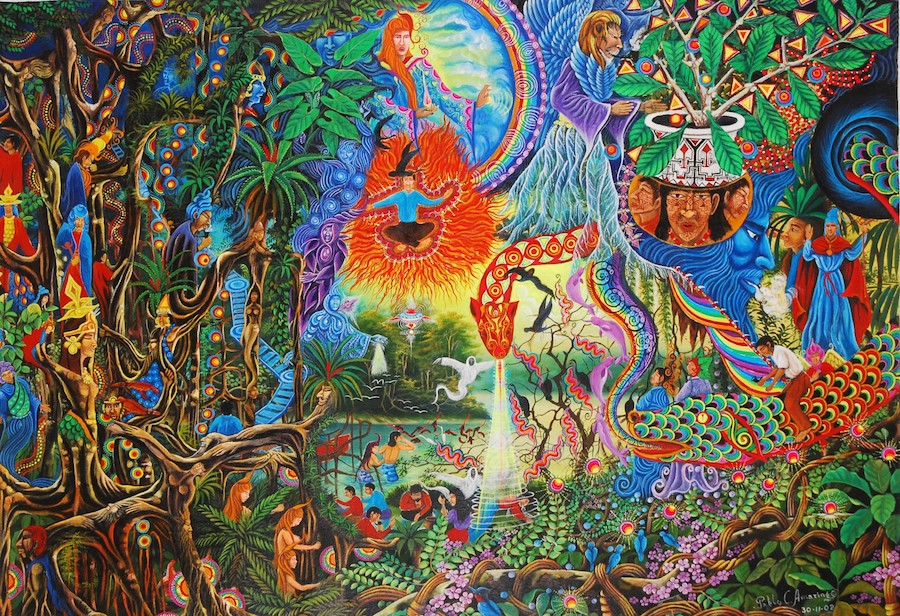South America, a vast continent brimming with diverse ecosystems, cultures, and histories, holds a rich tapestry of traditions deeply interwoven with the use of psychedelic substances. From the high-altitude terrains of the Andes to the dense Amazon rainforests, indigenous communities have, for centuries, turned to plants and fungi as gateways to spiritual realms and therapeutic healing. These aren’t just substances; they are sacred tools, integral to ceremonies, rites of passage, and communal bonding.
However, the path from traditional ritual to contemporary use in urban settings is laden with complexities. The increasing interest in these ancient compounds, coupled with the modern pace of overconsumption, have cast a shadow of ambiguity over the legal and ethical use of these psychedelics. How do nations with deep-rooted traditions reconcile with the rapidly changing global perspectives on psychedelics?
In São Paulo, at the state’s Federal University, a team of researchers embarked on a journey to unravel this question. Transposing this time-honoured wisdom into a clinical setting wasn’t a mere academic endeavour, but a task steeped in respect and responsibility, acknowledging the profound depths of these practices.
After two long years of relentless preparation and securing funding, the team launched their pioneering study to explore the potential of psychedelic mushrooms in treating tobacco addiction and ayahuasca’s efficacy for alcoholism. The first person to take part in the experiment took three grams of dehydrated psilocybe cubensis mushrooms, and a few hours later began to tell the research team an interesting story about an otherworldly place he had just seen!
Administering three grams of those mushrooms is absolutely no joke, and while the tales were captivating, the team cherished the very act of him sharing his narratives – This showed that their volunteer had entered an altered state of consciousness in a setting where he felt secure. These were the first baby-steps to incorporate an ancestral wisdom into our contemporary practices of health care.
And while psychedelic research surges in the global scenario, Brazil’s legal framework provides us with another card up their sleeve: Unlike many studies in the U.S. and Europe that predominantly explore synthetically derived psychedelics, this approach taps directly into Brazil’s natural biodiversity by using the substances in natura, which are permitted for religious and syncretic use. However, the war-on-drugs mentality still runs strong, so both ayahuasca and mushrooms are still considered dangerous drugs by many authorities, which could make things complicated very fast.
But we got to admit that it’s a bold move, and perhaps a bit ironic, that we are turning to our native hallucinogenic substances for potential remedies to the modern health problems caused by unprohibited substances. Yet, if we’ve learned anything from the world of psychedelics, it’s that they possess a remarkable knack for picking our minds with enlightening perspectives.
In a three-part blog series that will be published on the OPEN Foundation website during the coming months, I will share stories on how this research team faced institutional and political persecution for working with psychedelic substances, what their journey of seeking funds can teach us about the interest of the private sector in countries that carry an ancient traditional context of psychedelic use, and what did we learn from our volunteers during their participation in the study.
Stay tuned!
Image credit: Ayahuasca visions by Peruvian maestro and painter Pablo Amaringo, from ‘The Ayahuasca Visions of Pablo Amaringo’ by Howard Charing, Pablo Amaringo, and Peter Cloudsley (2011)














